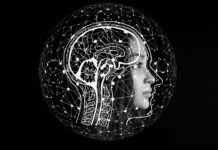Pregnancy does cause brain alterations, but scientists still disagree about other factors.
Momnesia is a slang term for a mother’s seeming inability to remember something for more than 15 seconds. This topic is a little personal for me, because I’m currently hugely pregnant, and today I managed to lock myself out of my house before remembering to grab my keys. So after being an hour late to work, I decided to check into the scientific basis for momnesia.
Brain and behavioral changes
Here’s what scientists agree on about brain changes during pregnancy: 50-80% of women experience some level of cognitive difficulty, with memory problems being the most common. Smell and taste perception changes as well. Hormonal fluctuations increase neural activity, likely to shape maternal care-giving behaviors.
Pregnancy also causes vascular changes: it increases the volume of blood circulating in the mother, and puts new strains on her ability to regulate blood flow and pressure, as well as increasing the need for nutrients everywhere in the body. The structure of the brain’s blood vessels alters to deal with the increased volume of plasma and metabolic demands of pregnancy. These adaptations serve to maintain a state as close to normal (or nonpregnant) as possible.
Pregnancy induced brain and behavioral changes have been extensively studied in rats and other experimental animals. The difficulty comes in when scientists begin to investigate these changes in people.
Controversial findings
The first area of disagreement concerns objective versus subjective measures of memory impairment. Subjective measures rely on what the subject reports, while objective measures are determined from experimental results. The majority of pregnant women subjectively report that they experience memory impairment, while some studies show no difference in performance.
Another factor to consider is what type of memory is being affected. Explicit memory is memory related to facts or events, while implicit memory is involved with learning and conditioning. Some experiments may only test one type of memory, which may not show any changes.
The sex of the fetus may also play a role. In one study, women pregnant with boys consistently outperformed women pregnant with girls in tests of working memory and spatial ability. Additionally, laboratory conditions may not accurately reflect the real life situations in which pregnant women are likely to be performing multiple tasks, either simultaneously or consecutively.
The actual causes behind these changes are still being debated. While physical changes in pregnancy are correlated to behavioral changes, other dynamics also apply. Stress, illness, and sleep deprivation are common pregnancy symptoms, and are also negatively associated with memory function. Furthermore, the way women feel emotionally may impact their self-reported results.
Increased EQ
While some areas of cognitive function may decline, studies suggest that some actually improve. MRI studies of women’s brains show that they have improved memory for faces and become more responsive to facial cues, such as changes in emotion. Female brains actually respond differently to crying infants than male brains, which may explain why some mothers can tell what is wrong with an infant just from the sounds they make. It may also explain why women are more likely to respond to crying infants at night while men are more likely to sleep through the disturbance.
While scientists may continue to debate the meaning of and causes behind momnesia, mothers everywhere are dealing with the effects, whatever they may be.
References
Brunton, P., & Russell, J. (2010). Endocrine induced changes in brain function during pregnancy Brain Research, 1364, 198-215 DOI: 10.1016/j.brainres.2010.09.062
Kinsley, C.H. and Lambert, K.G. (2006). The maternal brain. Scientific American, 294.1, 72-79. Preview accessible here.
Standtlander, L. (2013). Memory and Perceptual Changes during Pregnancy International Journal of Childbirth, 28 (2). Accessible here.




